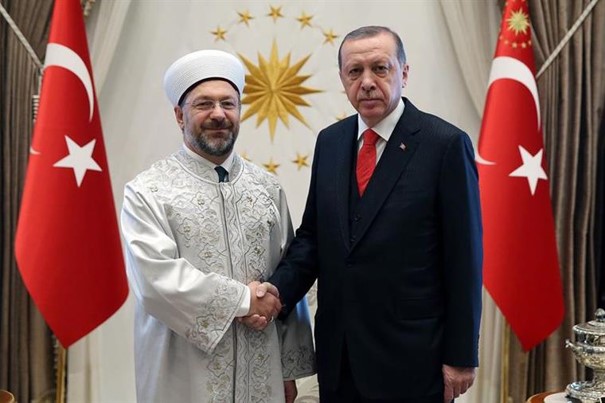Levent Kenez/Stockholm
The Turkish-Islamic Union for Religious Affairs (Diyanet İşleri Türk İslam Birliği, or DİTİB), the German branch of Turkey’s controversial Religious Affairs Directorate, commonly known as the Diyanet, is set to implement a new initiative next year. DİTİB, which operates as the religious arm of Erdogan’s Islamist regime and is funded by the Turkish government, will be bringing 75 graduates of Turkish faculties of theology or Islamic studies for training in Germany annually starting in January 2025.
These graduates will undergo a two-year training program at the DİTİB Academy in the North Rhine-Westphalia town of Dahlem before being appointed as imams at DİTİB mosques in Germany. As part of this initiative, the newly appointed imams are required to serve with DİTİB for a minimum of 10 years. Those who fail to complete this decade-long service will be obliged to reimburse DİTİB for expenses.
To promote the program, officials from the Diyanet are conducting seminars at Turkish universities across the country, informing students about the opportunities and obligations associated with this initiative.
Applicants to the DİTİB program must be under 30 years of age and have no health issues. Additionally, they must meet moral criteria to represent the Diyanet abroad. The brochure also states that those who fail in their education will be removed from DİTİB and have their residency in Germany revoked. In addition to the requirement for those intending to settle in Germany through DİTİB to not return to their home country after processing their residency permits, there is also a clause indicating that imams who resign from their positions earlier than 10 years of service will be required to repay training costs.
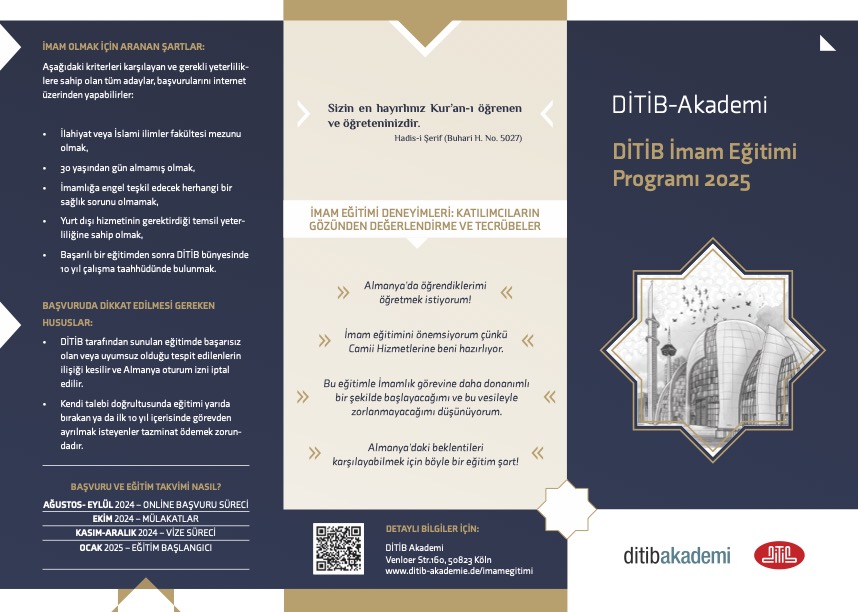
The DİTİB Academy launched its imam training program in January 2020 in Dahlem, aiming to respond to the religious, spiritual and social needs of the Muslim community living in Germany with clergy proficient in the German language. Along with fundamental duties such as preaching, ministry and religious education, the program offers comprehensive training. So far, a total of 53 imams have graduated, with 25 in 2022 and 28 in 2024.
During a press briefing last week regarding the 2025 program, DİTİB President Dr. Muharrem Kuzey informed journalists that there are currently approximately 1,200 Turkish clergy in Germany, with 250 of them proficient in German and trained in-country. Kuzey said that based on this accomplishment, DİTİB sees the expansion of imam training as an important step for the sustainability of religious services.
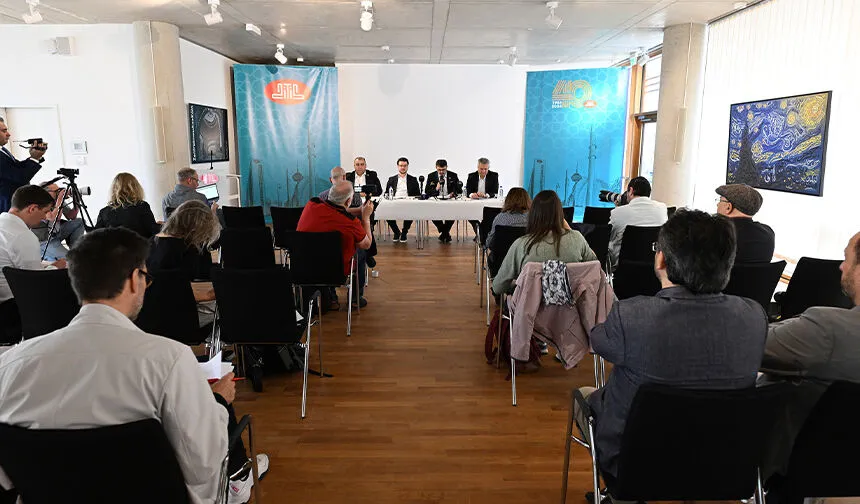
Kuzey emphasized that training clergy according to needs should be organized by religious communities themselves. He indirectly referenced some of Germany’s plans that foresee the training of imams by the German government, stating that such measures would go against the right of religious communities to determine their own destiny.
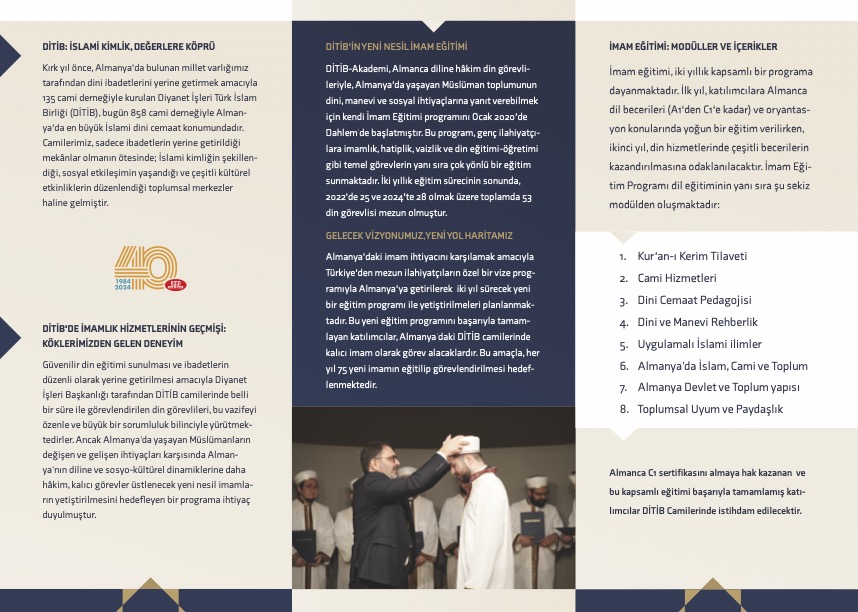
Stating their aim to provide a permanent perspective by bringing Islamic theology graduates from Turkey to Germany through the new imam training program, Eyüp Kalyon, the secretary-general of DİTİB, said, “This program is based on a comprehensive two-year curriculum for candidate imams. In the first year participants receive intensive training in German language skills and orientation topics, while the second year focuses on acquiring various skills in religious services. This model aims to train clergy who will serve permanently in Germany, rather than having imams from Turkey who stay for four or five years.”
DİTİB, closely linked to Turkish President Recep Tayyip Erdogan’s ruling Justice and Development Party (AKP), has been embroiled in several scandals in the past. In 2017 Germany’s federal prosecutor launched an investigation into 19 DİTİB imams suspected of providing Ankara with private information about members of the Gülen movement, a group critical of Erdogan, on orders from the Turkish government. However, the case did not proceed as some DİTİB members left Germany.
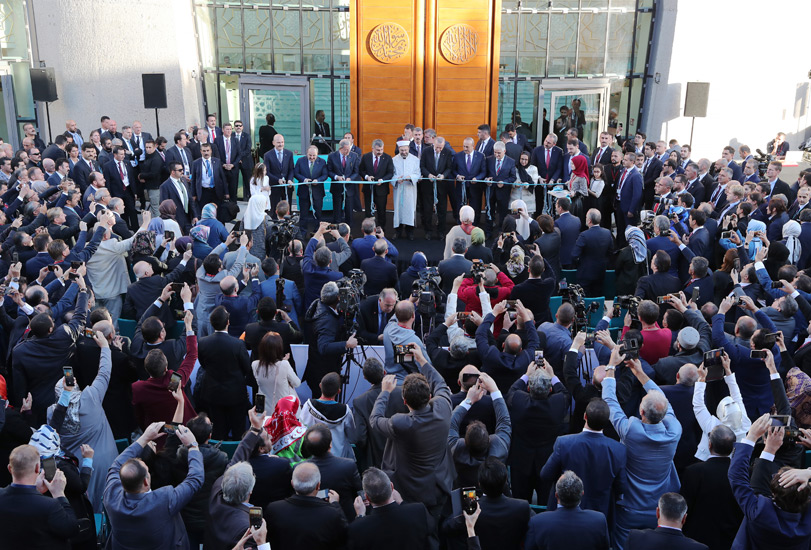
Germany has expressed concerns over imams coming through the Diyanet, whose salaries are paid by the Turkish government. The issues cited include their lack of integration into German society, political involvement and an inability to speak the local language.
The Diyanet, initially established by the Turkish state to counteract radicalism, has undergone a fundamental transformation during Erdogan’s 23-year rule, evolving into a significant instrument for propagating political Islam, reminiscent of the ideology of the Muslim Brotherhood, both within Turkey and internationally. Since 2016 the Erdogan government has summarily and arbitrarily purged approximately 3,000 personnel from the Diyanet, replacing them with individuals who embrace Erdogan’s political Islamist ideology.
Apart from the DİTİB Academy, the Diyanet also initiated a special project aimed at training groups of imams who were born and raised in European countries and hold citizenship there. These selected students from various nations are brought to Turkey to pursue religious studies at theology faculties, benefiting from a scholarship program sponsored by the Diyanet. This initiative, the “Uluslararası İlahiyat Programı” (International Theology Program), accommodates hundreds of students.

